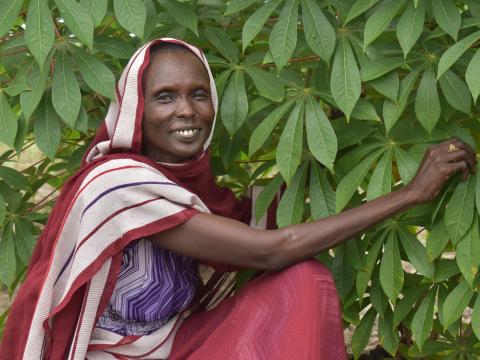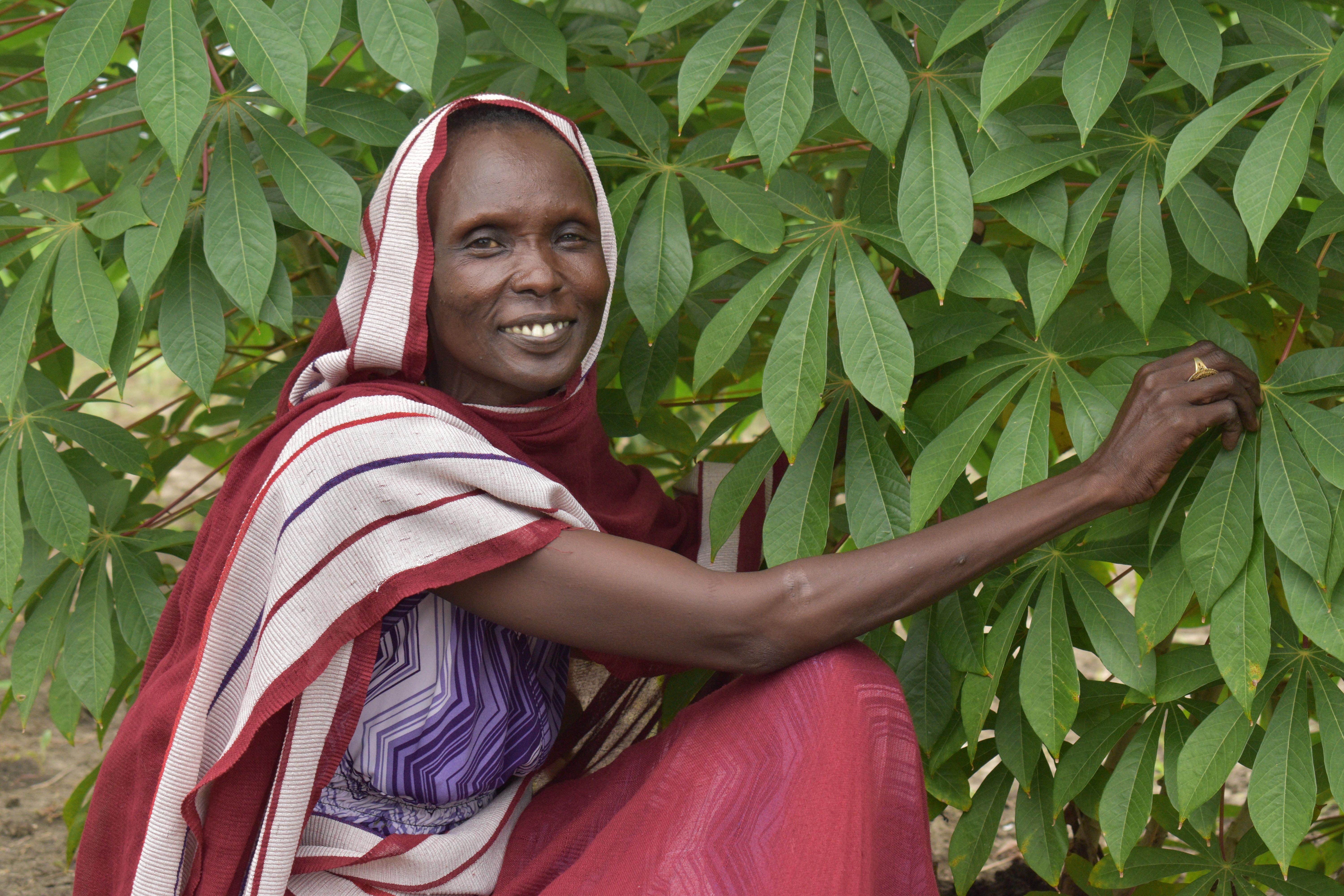South Sudanese mothers equipped to beat hunger and impacts of climate change

In recent years, South Sudan has faced prolonged dry seasons, floods and food insecurity, leading to the displacement of communities and a worsening hunger crisis. Upper Nile State is one of the places where evidence of climate change is seen. From a distance, what was once a farm now looks like a wasted land with plants immersed in water and tall overgrown grass due to the flooding last year. Mothers are learning to prepare, adapt and survive.
With funding support from the United States Agency for International Development (USAID), World Vision initiated the Restoring Lives of Families in Emergencies (R-LIFE) project in Malakal, Upper Nile, in 2019. Since then community members were able to learn new skills and knowledge on farming and other livelihoods. The programme also aimed to improve the nutritional status of families and access to Water Sanitation and Hygiene (WASH) services for irrigation and family use.
The project came at a time when I didn’t have hope for living.
The project significantly transformed the role of women in their communities. Some 50 women joined the project in 2019, among them was Nyanakim Achuli, a 44-year-old widow and a mother of six. Her family depended on a small piece of land she cultivated and the kindness of other families nearby.
“The project came at a time when I didn’t have hope for living,” she remembers.
Nyanakim joined a women’s vegetable group called Bolokat. Together, the women planted maize, sorghum, peas, sweet potatoes and cassava.
“In the past, we didn’t plant vegetables, sweet potatoes, and cassava. Now we have them,” she says.

These are climate-resilient crops that can withstand prolonged dry season, as well as floods. These have helped mothers like Nyanakim to put food on the table, especially during lean months where other crop harvests are scarce. She was also able to secure a loan of SSP 20000 (40USD) to open a sugar business which she later expanded into a tea business.
Unfortunately, as unpredictable the changing weather conditions are, the flooding in 2021 to 2022 affected many farms in Malakal. For Nyanakim and other mothers, it was heartbreaking to witness their farms -- their main source of income -- being washed away. With barely enough harvest to feed her family, sending children to school had become a painful undertaking. But they applaud the project for preparing them to face food insecurity.
Recognizing the impact of the situation on the vulnerable communities in Malakal, World Vision, thru the R-LIFE’s successor project REBUILD, is taking action to help the farmers prepare for and manage the impact of severe weather. The project had so far provided seeds, rakes, hoes, storage for seeds, water pumps, fuel, and trainings on vegetable production, pests and disease control, seed selection, and the growing of drought and water resistant crops.
The R-LIFE project director Sibonakaliso Mpala says, “Heavy rains have seen large swathes of the region flooded. From 2021 to 2022, we experienced river flooding almost all year round. This has prevented communities from being able to cultivate and plunged them into emergency levels of food insecurity. The R-LIFE project and its successor, the REBUILD project, focus on disaster risk reduction by encouraging farmers to rebuild dykes and flood protection structures and, in some instances, move further inland away from the flood plain. This requires the revival and repair of irrigation pumps, pipes and canals to convey water to those farmlands, an initiative that the project is supporting.”
Story and photos by Jemima Tumalu, Communications Officer